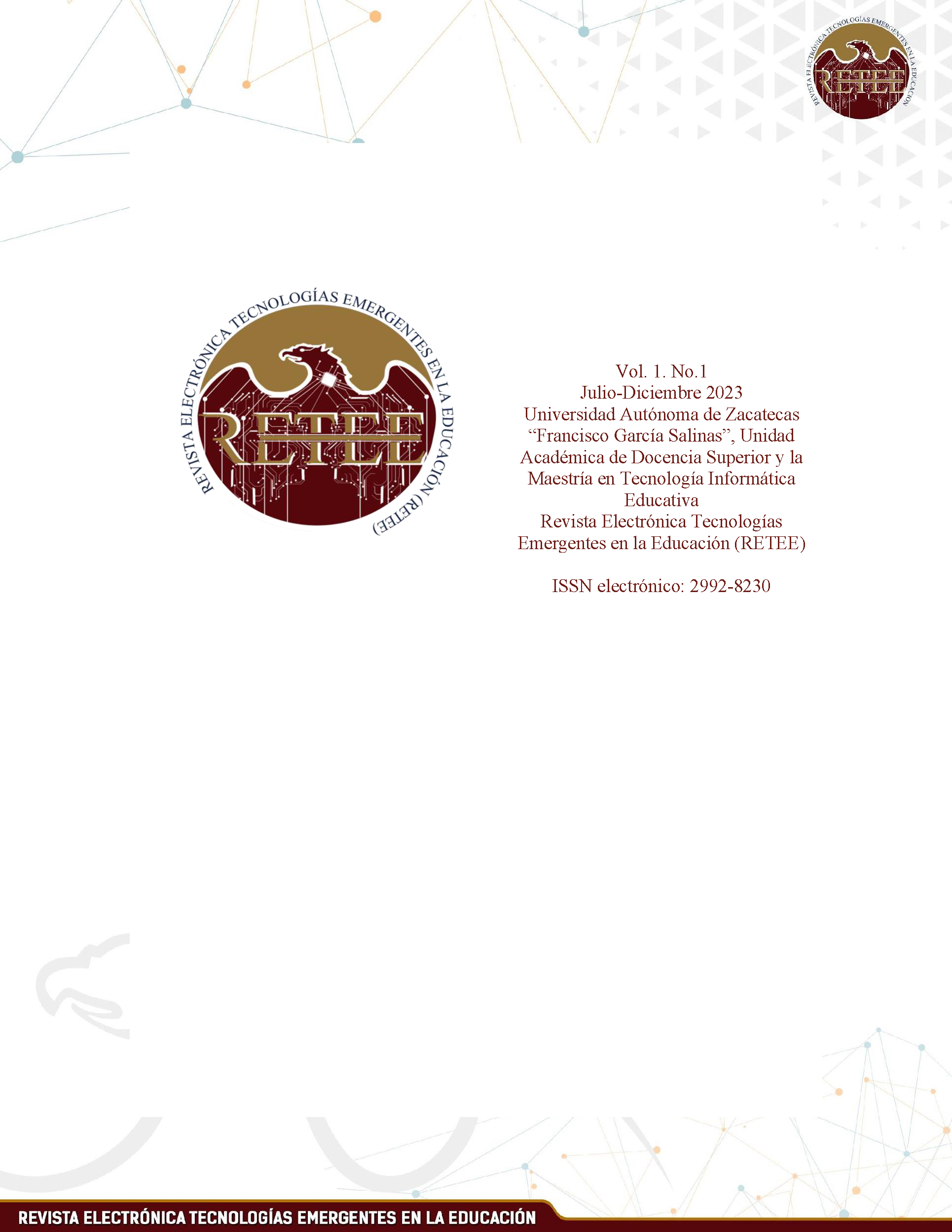Perceived self-efficacy in Virtual Environments d
Published 2023-11-17
Keywords
- perceived self-efficacy,
- academic performance,
- virtual learning environments,
- self-management of learning
Copyright (c) 2023 Revista Electrónica Tecnologías Emergentes en la Educación

This work is licensed under a Creative Commons Attribution 4.0 International License.
How to Cite
Abstract
This article addresses the issue of self-efficacy as perceived by Bandura (1986) in the virtual learning environments of a bachelor's degree programme. A specially designed instrument, based on the concepts considered for this theoretical construct, was applied to 60 students who took the programme in the blearning mode. The aim of the research was to find out the students' perceptions of their own efficacy before and during the execution of their academic activities in virtual learning environments and in the context of the last stage of their initial training process.
The instrument invoked was constructed from eleven items, these involved the handling of the concepts already invoked and coined by Bandura (1986), with respect to perceived self-efficacy: optimism, self-esteem, self-regulation, quality of life, positive affect, perceived competence, resilient personality, task-centred coping, job satisfaction; depression and anxiety. Based on the data provided by the frequencies and percentages for each of the items, the results were analysed and discussed.
For virtual learning environments, it is essential to develop competences in students that provide them with the opportunity to face their academic tasks more successfully in distance education contexts and where study habits and attitudes are essential for the desirable exercise of academic autonomy, based on the development of self-management learning processes.
Downloads
References
- Bandura, A. (1977). Self-efficacy: toward a unifying theory of behavioral change.Psychological review,84(2), 191.Bandura, A (1986). Self-efficacy mechanism in human agency. American Psychologist 1986, 37, 122-147.Bandura, A. (1999) Autoeficacia: cómo afrontamos los cambios de la sociedad actual. Desclée de Brouwer. Recuperado dehttps://www.adeepra.org.ar/ congresos/Congreso%20IBEROAMERICANO/ACCESO/RLE2870_ Gonzalez.pdfel 19 de agosto del 2020. Bandura, A. (2001). La teoría cognitiva social: Una perspectiva agencial. Traducción: Ps. Ricardo Bascuñán C. Revisión anual de Psicología.Camposeco, F. (2011). La autoeficacia como variable en la motivación intrínseca y extrínseca en matemáticas a través de un criterio étnico. Tesis doctoral. Universidad Complutense de Madrid. Facultad de educación. Departamento de psicología evolutiva y de la educación. Madrid, España.Cid , P., Orellana, A. & Barriga Omar (2010). Validación de la escala de autoeficacia general en Chile. Revista Médica de Chile; 138: 551-557Galleguillos, P. & Olmedo , E.M. (2017). Autoeficacia académica y rendimiento escolar: Un estudio metodológico y correlacional en escolares. ReiDoCrea, 6: 156-169 (2017).García Argueta, I. (2023). Investigación exploratoria, descriptiva, explicativa y correlacional. http://ri.uaemex.mx/bitstream/handle/Góngora, J. (2005) La autogestión del aprendizaje en ambientes educativos centrados en el alumno. Recuperado de http://sitios.itesm.mx/va/diie/ docs/autogestion.pdf el 25 de julio del 2020.González, M. (2010). Autoeficacia percibida y desempeño académico en estudiantes universitarios. InMemorias del Congreso Iberoamericano de Educación. Argentina: Universidad Nacional de Cuyo. Recuperado de http://www. adeepra. org. ar/congresos/Congreso% 20IBEROAMERICANO/ACCESO/RLE2870_Gonzalez. pdf.Merino , E. (2010). La expectativa de autoeficacia: su influencia y relevancia en el desarrollo personal. https://www.redalyc.org/pdf/3498/349832326039.pdf
- Olivari, C. & Urra , E. (2007). Autoeficacia y Conductas de Salud. https://www.scielo.cl/scielo.php?script=sci_artteOviedo, P. (2013). El aprendizaje autogestionado y colaborativo. https://ciencia.lasalle.edu.co/cgi/viewcontent.cgi?article=1364&context=rulsSabino, C. (2006). Marco metodológico.Soler, M., Solanas, P., Aymerich, M., & Brugada, R. (2011). Autogestión en el proceso de aprendizaje: el viaje a itaca.Virtual Urbe (s/f). Marco metodológico. https://virtual.urbe.edu/tesispub/0088963/cap03.pdf


